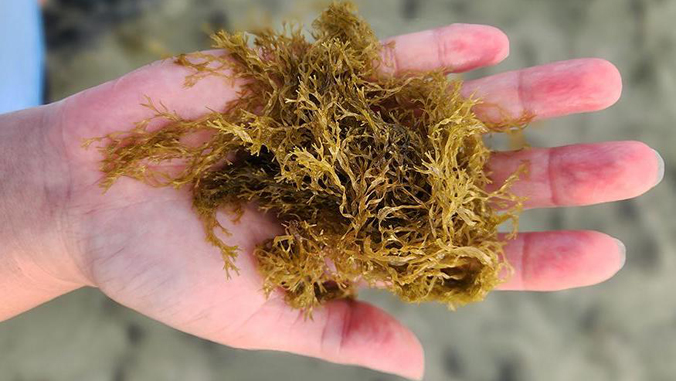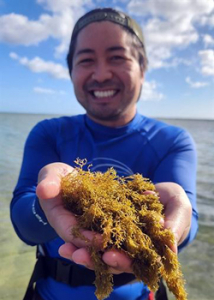
A limu (seaweed) native to Hawaiian waters, Dictyota sp., is gaining attention for its potential to produce compounds that have high-value ingredients in pharmaceutical, nutraceutical, food processing, medical and dental industries. University of Hawaiʻi at Mānoa researchers are exploring ways to establish an Indigenous limu commercial industry in the islands using the second of two $150,000 Sun Grant Western Region awards granted to Samir Khanal of the College of Tropical Agriculture and Human Resources.
Although the limu is currently “unexplored” as an algal feedstock, Khanal of the UH Department of Molecular Biosciences and Bioengineering believes it could potentially launch a significant commercial industry—if researchers could figure out a way to boost its growth rate.

“If we can develop a biorefinery, focused on this Indigenous Hawaiian seaweed, to produce high-value compounds while simultaneously remediating aquaculture effluent [waste], this will introduce sustainable macroalgal-based bioproducts to the Hawaiʻi marketplace and create new avenues for a circular bioeconomy in the state,” said Khanal.
Creating a biorefinery
Khanal and his team of researchers including Surendra KC, Manpreet Kaur and graduate student Ty Shitanaka are using CO2-nanobubbles and aquaculture waste as a nutrient source.
The team’s approach includes lab-scale experiments to optimize growth conditions, followed by pilot-scale cultivation trials. They plan to refine extraction methods for fucoidan (sulfated, fucose rich polysaccharides) and alginate (natural polymer), investigate potential applications for the limu’s biomass residue—and most importantly—assess the economic potential of scaling up a Dictyota-based biorefinery.
“The outcomes of this project have the potential to develop larger extramural grants and strong collaborations between private and public institutions, with special emphasis on commercialization,” said Khanal.

